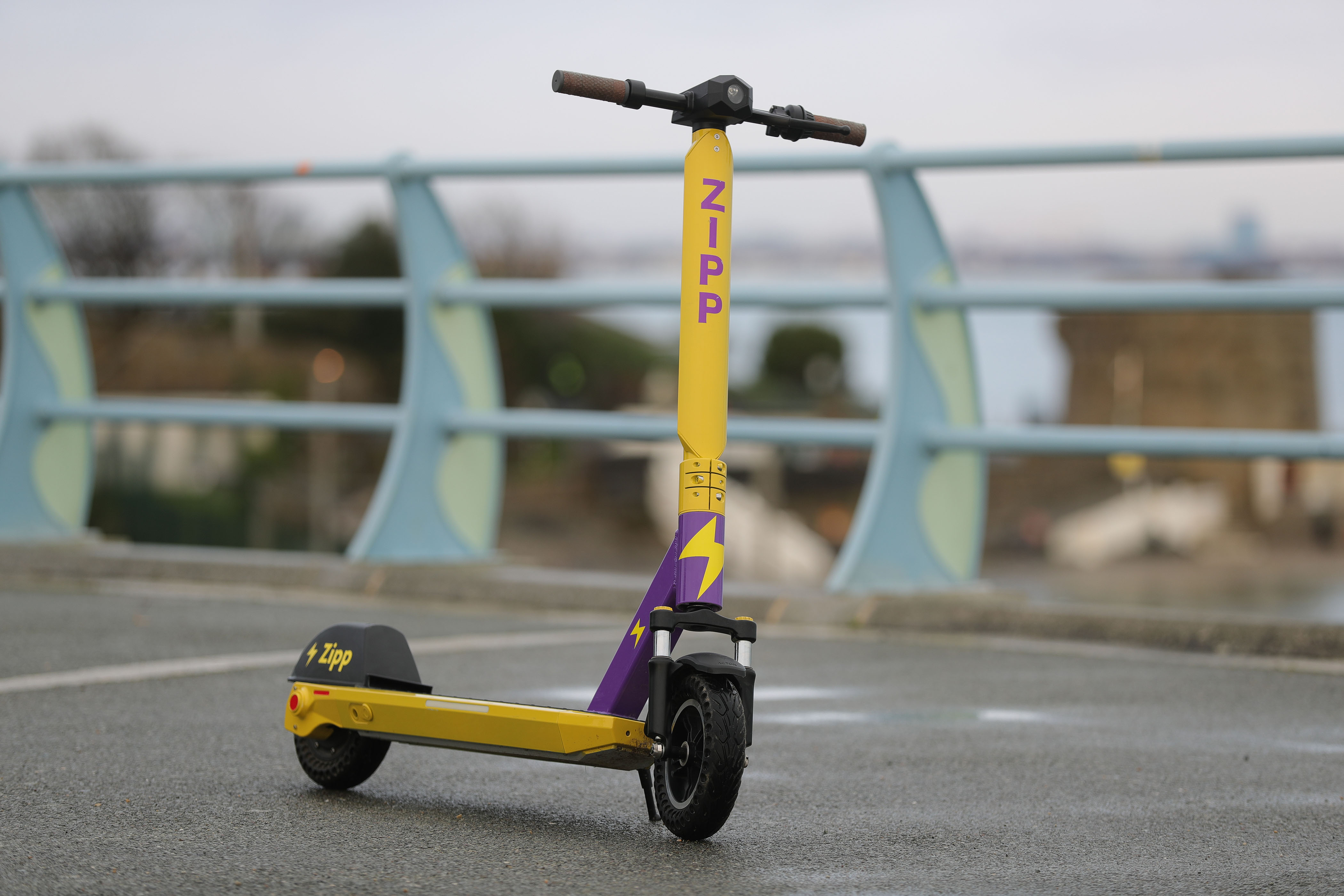
Zipp Mobility and Luna Announce ‘Smart Scooter’ Partnership
Zipp Mobility, the micromobility operator headquartered at NovaUCD, and Luna, a leading ‘smart scooter’ technology company headquartered at DCU Alpha, today announced a partnership to roll out next-generation scooters that ‘know’ where and how they are being parked and ridden.
These scooters are fitted with world-first centimetre-level positioning technology and Artificial Intelligence (AI) cameras, to solve the dual issues of dangerous parking and illegal footpath riding.
Cities across the globe are demanding better fleet governance from operators, in response to complaints from pedestrians and vulnerable road users, and Zipp Mobility is responding to this evolving municipal requirement through the deployment of Luna-enabled smart scooters.
This smart scooter technology will be available on Irish and UK streets from April.
Luna’s centimetre-level accurate GPS technology has been developed to better govern and control shared scooter schemes particularly with regard to unacceptable scooter parking. Luna-enabled scooters know, to an accuracy of up to 2 cm, if they are parked in the appropriate location or not. This order of magnitude improvement in scooter GPS accuracy will allow Zipp Mobility to prevent their new smart scooters from being parked in any unauthorised locations, causing street clutter and trip hazards for pedestrians.
Additionally, Luna’s computer vision technology has been incorporated into the new smart scooters for Zipp. This technology has been designed to control illegal riding on footpaths and in other unauthorised areas. This is achieved through a range of smart cameras and ‘Edge AI’ algorithms that can detect pedestrians and understand what surface or lane the scooter is riding in. Zipp will use this data to warn, slow down, fine or even ban users who misuse their scooters.
The Luna smart scooter will reduce insurance costs, municipal fines, and fleet management costs for Zipp, while simultaneously improving customer satisfaction and public acceptance of shared scooters. The Luna smart scooters will initially be rolled out across Zipp’s UK operations, with the intention to also bring this Smart City capability to bear on any future Irish shared scooter schemes.
Charlie Gleeson, Founder and CEO, Zipp Mobility, said, “Zipp is delighted to be partnering with Luna, another rapidly emerging Irish micro-mobility success story, to make our fleet the most technologically advanced one on the streets of the UK, and in the near future Ireland. We have seen first-hand the requirement for better GPS capabilities in the industry, in order to better control rogue parking and other operational aspects of our business.”
He added, “Moving from standard GPS accuracy of 5-10 metres to hyper accuracy at the centimeter-level is a game-changer, and we’re excited to be at the forefront of this industry transition. The computer vision technology is just as exciting and it gives us the ability to monitor and control footpath riding in real-time, and this is going to make a massive difference to the services we can offer to local authorities as we continue to reach our goal of “mobility done right.”
As part of this collaboration, Luna and Zipp will also be providing precise positioning and computer vision ‘smart city’ data to DCU researchers for research projects based in the Insight SFI Research Centre for Data Analytics, as well as to the Smart Dublin team. This GDPR-compliant acquired and shared data can be mined for insights in respect of rider behaviour and safe infrastructure requirements, which can then be used to inform municipal policy in respect of micro-mobility generally.
Andrew Fleury, Co-Founder and CEO, Luna, said, “It’s fantastic for Luna, an Irish company, to be honing this technology in partnership with an Irish e-scooter operator. Shared scooter schemes will likely be coming to the streets of Dublin, Cork, Belfast and elsewhere on the island during 2021, so it’s important that local authorities leverage the learnings from other locations when implementing their own scooter schemes.”
He added, “We’ve seen problems arising in other locations due to pavement riding, and street clutter caused by bad parking, and we look forward to innovating alongside Zipp, Insight Centre for Data Analytics, and Smart Dublin, in order to overcome these Smart City challenges.”
Computer Vision will play a vital role in the future of shared scooter schemes and opens up other smart city data possibilities for operators and regulators alike, including helmet detection, camera assisted parking, pothole recognition, traffic monitoring, crowd analytics, and even autonomous rebalancing of scooter fleets. Zipp is committing to investigating these alternative use cases in partnership with Luna, in the expectation of offering these solutions to cities in 2021 and beyond.
Today’s announcement comes on the back of the recent Irish Government statement on their intention to regulate the use of electric scooters this Spring.
ENDS
25 January 2021
For further information contact Micéal Whelan, Communications and Media Relations Manager, UCD Research and Innovation, NovaUCD, e: miceal.whelan@ucd.ie, t: + 353 1 716 3712.
